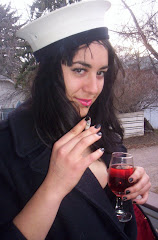So let's say you want to sound a little more interesting when you are talking to your friend Иван.
You suspect he's been trying to avoid you lately, and besides, you're tired of just pointing at people and asking if they are a basketball player or not.
What you really want to know is if certain people are good basketball players, and if they are Russian or Canadian (you can't help it if you're nosey).
What you need to do is learn some adjectives!
Adjectives describing quality:
masculine /feminine - English translation
хороший /хорошая - good
неплохой /неплохая - not bad
плохой /плохая - bad
известный /известная - famous
очен - very (this can be used with any adjective)
Adjectives always agree with the word they are describing. You have to be really careful of which ending (masculine or feminine) you are using depending on who/what you are talking about/to. Since all Russian adjectives agree with the noun used, if you were using the masculine version of a noun to describe a female (for example: композитор), all of the adjectives ( for example: хороший) would be in masculine form.
Take a moment to look at the adjectives listed in this post. The masculine words have the endings ий, ый, or ой. The feminine words all end in ая. Russian words can look really long and complicated but memorizing and recognizing these types of endings makes it a lot easier to learn.
Adjectives describing nationality:
These words aren't capitalized in Russian the way they would be in English.
русский /русская - Russian
канадский /канадская - Canadian
американский /американская - American
английский /английская - English
Most dictionary's only list the masculine form of words. Eventually you need to be able to convert these words to the feminine and even neuter versions (which we will learn another time so stop sweating!!).
You and Иван are hanging out in at a local rec center. You know that guy standing over there is a basketball player (because you've now asked him about a dozen times right?) but you don't know if he is Russian. You turn to Иван and ask "Это русский баскетболист?" (remember to raise the inotation for the word русский because that is what you are specifically asking about).
Иван answers "Да, русский" or "Нет, канадский"
You nod but are still curious about the guys skills so you ask "Это хороший русский баскетболист?"
Иван, thankful that you are asking him something different for a change, answers "Да, очен хороший" or "Нет, не хороший, а плохой".
You see how much better conversation can be with just a few adjectives?! But don't go booking a flight to Moscow just yet comrade...
Давайте учиться говорить сексуально...
Subscribe to:
Post Comments (Atom)






No comments:
Post a Comment